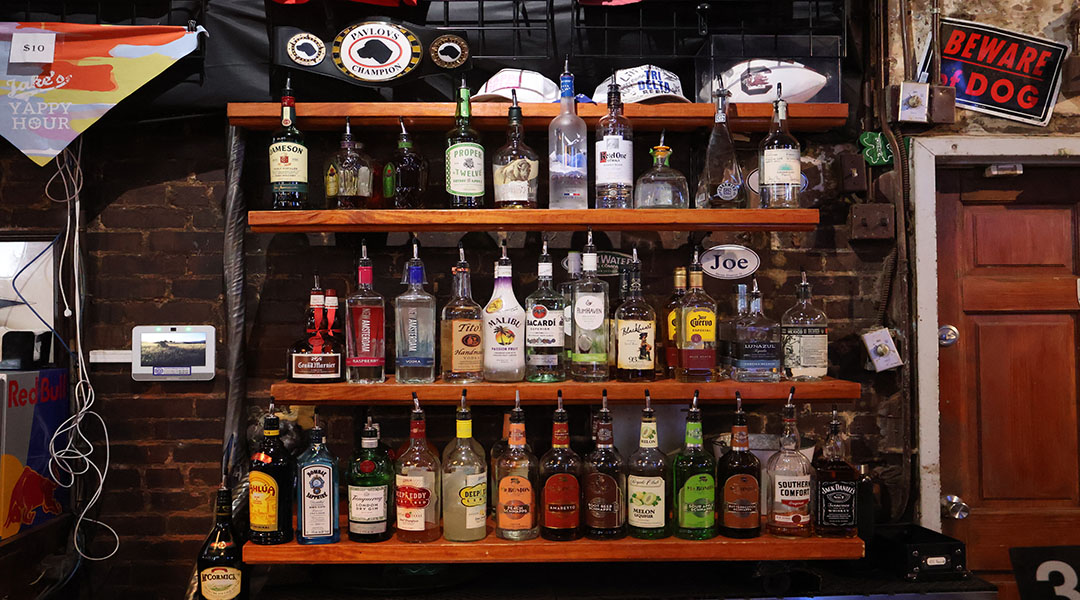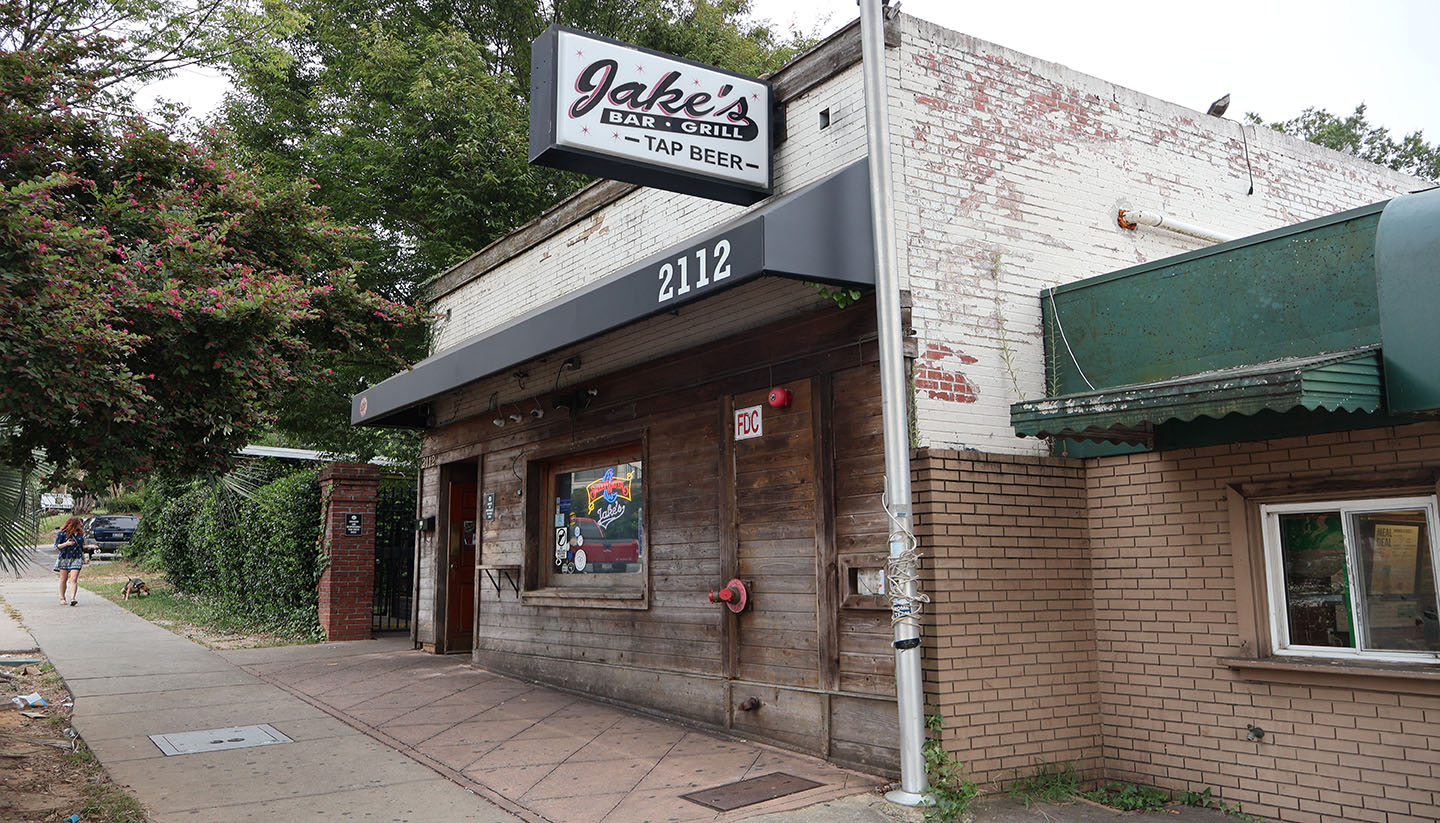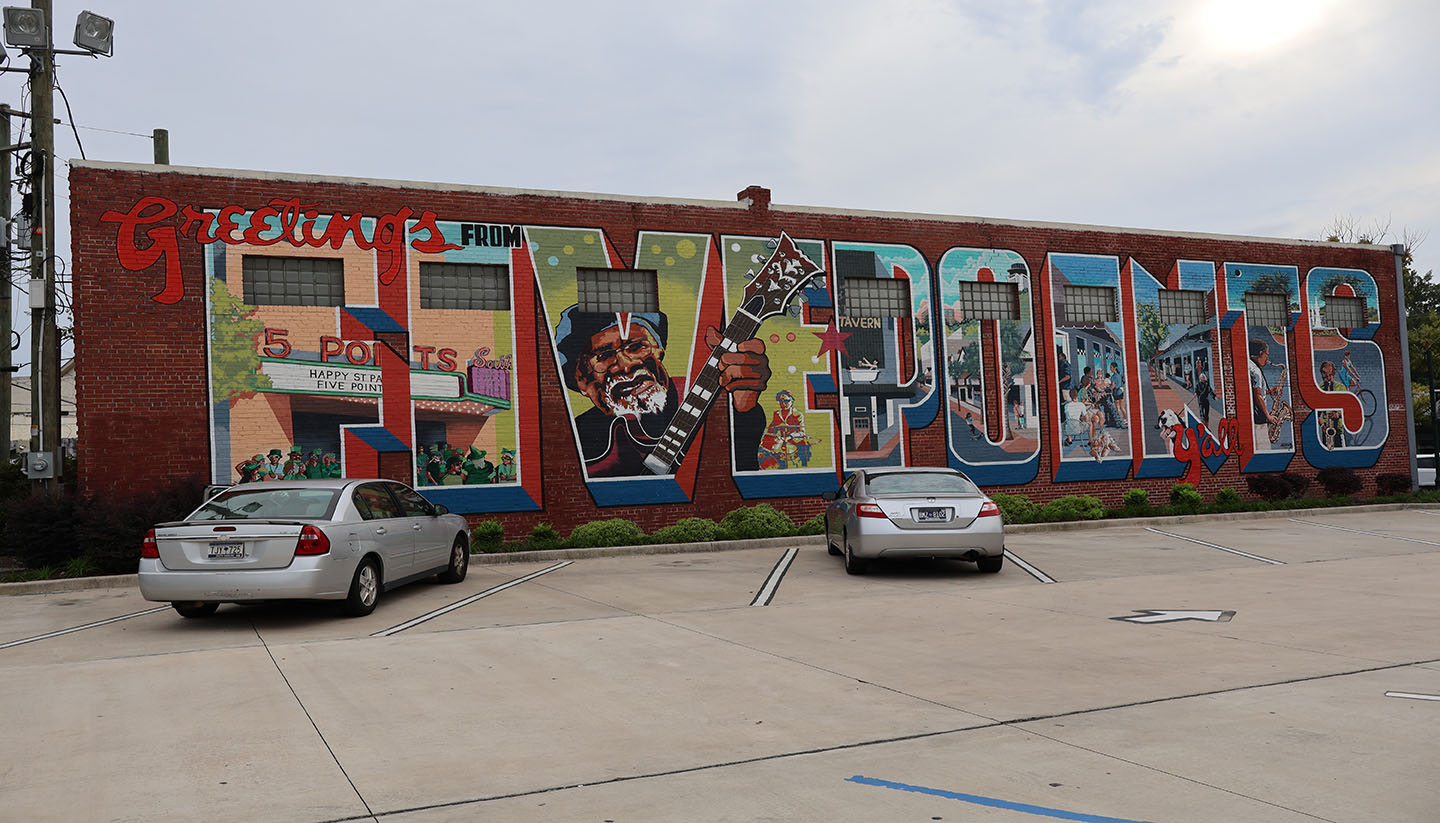Jake’s of Columbia in the Five Points area adjacent to campus, is popular with University of South Carolina students. (Photos taken by Camdyn Bruce/Carolina News and Reporter)
Liquor liability insurers have fled the state, with remaining insurers driving up rates for S.C. bars and restaurants.
Some businesses say they can’t afford it and there’s nothing to do but close.
Insurers fled after state lawmakers in 2017 required businesses serving liquor after 5 p.m. to begin carrying a minimum of $1 million in liquor liability insurance. Insurers were further concerned after several bars and their insurance companies lost high-dollar settlements in wrongful death and personal injury cases when juries decided the bars had overserved patrons.
Some bars carried that level of insurance before state lawmakers required it. But the legislation forced everyone to carry the $1 million minimum to keep people from suing cities when bars didn’t have the money to cover high-dollar damages.
Many insurers decided it’s not worth it to do business in South Carolina, said Susan Cohen, president and CEO of the South Carolina Restaurant and Lodging Association.
“We’ve had as many as 30 carriers in the state in the past, and now we’re down to about five,” Cohen said.
The exodus of insurance companies has prompted lobbying to change liability standards in alcohol-related cases with damages. A change, if approved by state lawmakers, would help protect someone from winning a case against all bars an inebriated person visited in one night, instead focusing on the one business deemed most at fault.
Jonathan Sears, co-owner of multiple bars, including Jake’s on Devine and The Cotton Gin, said the state’s requirement that bars carry at least $1 million in coverage has caused price gouging for premiums.
“The remaining companies in South Carolina are now charging a really exorbitant amount of money, to the point where … a lot of places are going out of business now, and a lot more will be going out of business just based on the cost of these policies,” he said.
Sears blamed the current joint and several liability standards employed in alcohol-related wrongful death and personal injury lawsuits. Under what’s called joint and several liability, a bar and its insurance company could be responsible for paying the entire verdict in a lawsuit even if it is found to be only 1 percent responsible for damages.
So insurance companies often want to settle because they don’t want to go to court and risk a multi-million-dollar verdict, Sears said.
Settling has become the norm, he said.
“There’s been cases where I’ve said, ‘Please fight this, please take this to trial, because there’s no way we should lose this,’” Sears said. “The insurance company will say, ‘Well, I don’t want to risk it. I’m not trying to go over the policy limit, so let’s just settle it for $975,000.’”
Alcohol-related injury lawsuits are among the few areas in South Carolina law exempt from modified joint and several liability standards. Under this standard, if a defendant’s conduct is determined to account for less than 50 percent of the total fault, they’re only required to pay the percentage of damages they’re deemed responsible for by a jury and not the entire verdict.
So, without settling, payouts can be huge for insurers if they lose a case.
Columbia bar owners want the state legislature to pass the SC Justice Act during the next legislative session. This would extend modified joint and several liability to bars in alcohol-related lawsuits.
A recent lawsuit filed in Charleston County by widowed husband Aric Hutchinson, whose bride was killed on their wedding night by a drunk driver in Folly Beach, has bar owners worried about yet a new precedent.
More than 10 bars and restaurants have been named as defendants in the ongoing suit.
“If you go to 10 different bars, and then the last one you’re at, you have eight shots, you know, you’re falling out of your barstool … and then pull out your keys and drive away, that bar should be more at fault than the first bar that served them one beer,” Sears said.
Kristian Niemi, who owns several restaurants, including Bourbon on Columbia’s Main Street, said while it’s illegal for bars to overserve customers, the way the laws are written, a bar could have a lawsuit filed against it for serving someone one drink.
“Somebody could sit at their house and hammer back shots and before the alcohol takes effect they could come into a bar, have one drink, pull out of the parking lot and slam into somebody and we’re lumped in,” Niemi said.
Mothers Against Drunk Driving opposes the SC Justice Act because it will result in DUI victims receiving less compensation, according to the organization’s Regional Executive Director for South Carolina and North Carolina, Steve Burritt.
“If there’s an award of a certain amount, and the law were changed to say Bar A only has to pay whatever percentage that was considered their fault, and the same with Bar B, and one of those just doesn’t have that money, the only person that loses in that situation is the victim,” Burritt said.
Burritt also said bars shouldn’t be worried about losing a group lawsuit if they aren’t breaking the law.
“That first bar that served a sober person is not going to be paying out,” Burritt said. “If they’re saying that they are, they’re not – or they have the worst attorneys that money can buy.”
Attorney Kenneth Berger said he thinks disputed cases aren’t that difficult to win: Insurers only lose when bars are clearly and demonstrably at fault.
“These aren’t borderline cases,” he said. “These aren’t frivolous. These are cases where bars got people grossly intoxicated, two or more times the legal limit, and innocent people died.”
Jake’s was sued four times recently within an 11-month period. Three cases are pending. Each suit alleged the bar knowingly overserved patrons who later got into car accidents. In two of the cases, victims hit by drunk drivers died from their injuries suffered.
Berger is one of the lawyers representing a plaintiff in a wrongful death suit against Jake’s.
That lawsuit alleges that on July 23, 2022, Jake’s knowingly overserved patron Joshua Collins, who around 4 a.m. got into a car accident resulting in the death of 23-year-old Everardo Galarza of North Carolina.
Berger said Collins’ tab at Jake’s was $133.30.
Sears said via email that “Collins had a designated driver to and from Jake’s” but drove himself “hours later.”
He said he “had the utmost sympathy for the victim. But there’s nothing we could have done to prevent this from happening.”
Niemi said if joint and several liability aren’t reformed, and insurers don’t come back, bars following the rules will continue to be held hostage by the few insurers remaining in the state.
Niemi has never had a suit filed against one of his businesses, yet his rates went up nearly 20% last year, he said.
“It doesn’t matter how safe you are,” Niemi said. “You can send every one of your servers and bartenders to ‘tips training,’ and it doesn’t help at all. It makes no difference. Your rates are still going up.”
Sears said his rates have gone up every year, too, even for the establishments he owns with no lawsuits against them.
“Literally, I don’t have one claim,” Sears said. “You’re telling me last year I paid $40,000, and this year I’m paying $80,000.”
Berger said he was sympathetic to bars that are following the rules, but lowering the joint and several liability standard would reward bad actors.
“Even with joint and several liability, you still have bars breaking the law in really flagrant ways,” Berger said. “What do you think is going to happen if we remove it? That they’re going to behave better? That there are going to be less victims?”
Sears said he was worried his insurance company could drop Jake’s.
“I’m afraid I’m not going to be able to get a policy,” Sears said.




